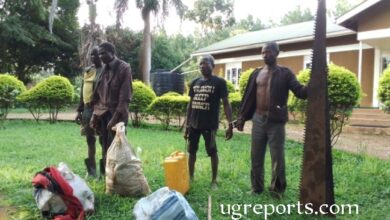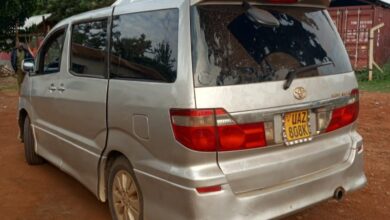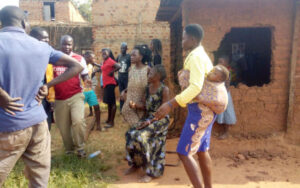Grassroot communities using community safe spaces to fight against gender based violence in Bunyoro
On a fateful night, Oyergiu disappeared with a baby after accusing his wife of refusing to give him money for booze. The child was discovered the following day dead with deep cuts on the head.

By Peter Akugizibwe
Hoima: Grassroot communities in Bunyoro region are using community safe space to reduce the increasing cases of gender based violence in the region.
The Community Safe spaces, established with support from National Association of Professional Environmentalists in 2021, help the victims of gender based violence get psychosocial support, mediation, counseling and referral to police with by trained community caretakers.
From 2021, NAPE established community safe spaces to handle cases of gender based violence under a European Funded project “Deepening grassroots women’s rights, participation and economic livelihood opportunities in the era of expanding of oil and gas extraction and COVID-19 pandemic in Uganda” in Hoima, Kikuube and Buliisa districts
According to Rajab Bwengye, the projects coordinator, the safe spaces were established to help communities solve minor cases through mediation and counseling, and refer to police cases that are capital in nature.
He says community caretakers who were identified within the communities have been trained to identify and address gender based violence through mediation, counseling, and referral and follow up to police in 20 community safe spaces established in three districts.
Anne Basiima, one of the caretakers from Kigaaga village safe space in Kabale Sub County, Hoima district says many people fail to report cases to police due to corruption, costs, delayed solving of cases and lack of privacy.
She says the safe spaces have been helping to solve minor conflicts that are easily solved through mediation. She says her safe space has so far registered about 100 cases of which 80 have been resolved and mediated by the caretakers.
“Our police post is about 3 kilometres from our village and one needs transport to follow up the case, besides, the police ask for money to photocopy police forms others get money from the perpetrators and kill the cases. Therefore, we are working hand in hand with police to end violence,” Basiima.
Peace Ankunda, one of the caretakers for safe space in Kijayo camp for internally displaced people ’s camp says land evictions to pave way for sugarcane growing by Hoima sugar company has cause food insecurity and poverty leading to gender based violence.
Ankunda says that the safe spaces are equipped and managed by trained community based care takers to enable victims of violence seek help and get justice. She says they have become a solution to scarcity of police posts and are helping in handling minor cases to solve the backlog of unresolved cases at the police posts.
Edward Tumusiime, the village chairperson for Kijayo village says the safe spaces have eased the work of LC1 committee and police in conflict resolution.
“Local council courts ask for 20,000 shillings for the committee to able to sit and resolve case yet safe spaces are for free. They are helping us to reduce conflicts that are dominating in the camp due to lack of food and other basic needs,” said Tumusiime.
According to 2022 Police Annual Crime report, Albertine region registered the highest number of domestic Violence cases in 2022 with 1,841 cases registered out of 17,698 cases country wide. The report further shows that more women and girls as victims of domestic violence compared to men.
According to Bwengye, cases recorded by caretakers at all the 20 established safe spaces in all the 3 operational districts are 1,186 out of which 953 were resolved at safe space sites. He notes that others have been referred to police for further management contributing to a success rate of 80%.
The author works with western media for environment and conservation (Wemeco).
Do you have a story about your community or an opinion to share with us? Email us at theugreports@gmail.com.






